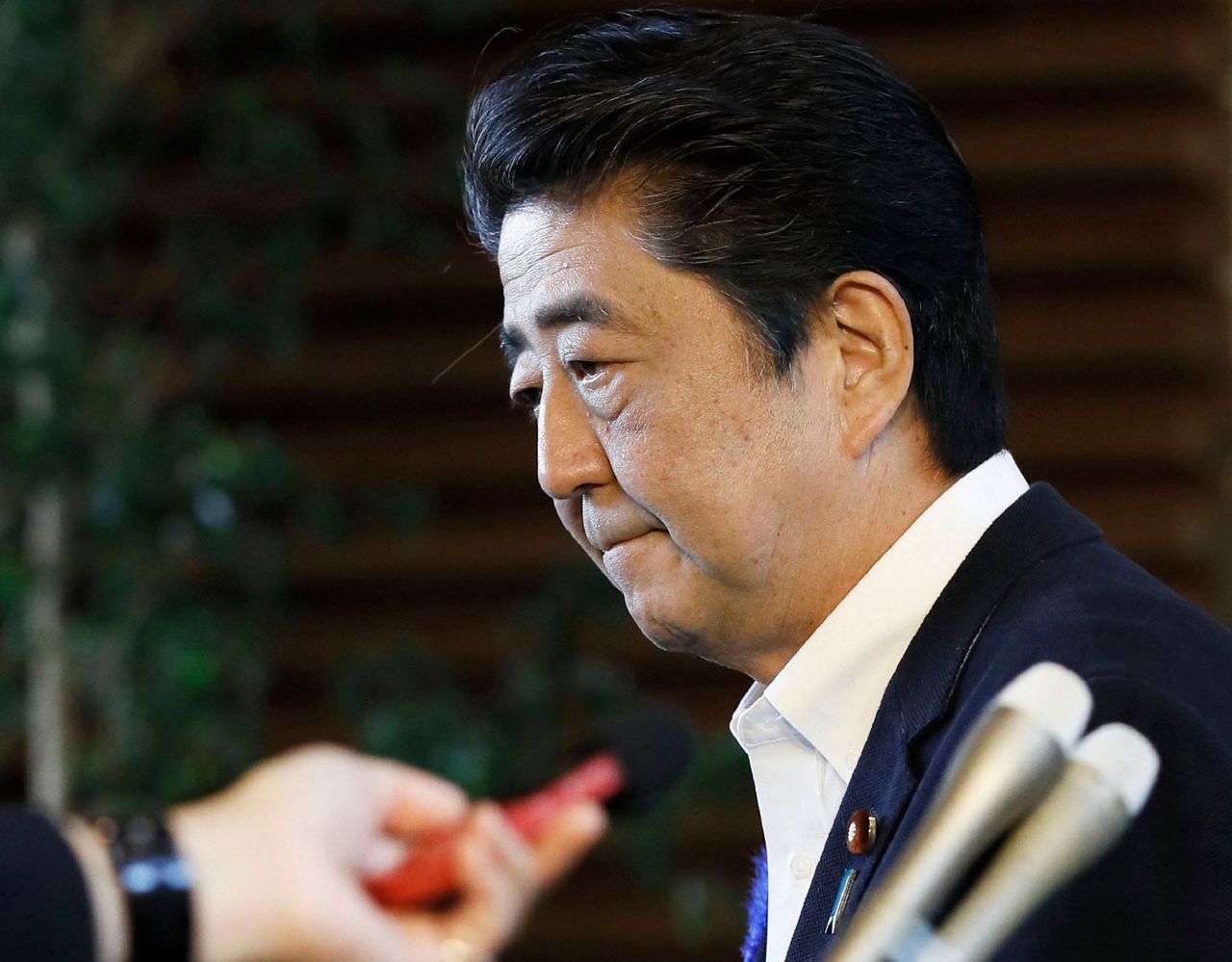TOKYO (AP) — Japan's prime minister said Tuesday that the government will abide by a court ruling ordering it to compensate former leprosy patients' families over a lengthy segregation policy that severed family ties and caused long-lasting prejudice.
Prime Minister Shinzo Abe said the government will not appeal the Kumamoto District Court's decision in June awarding compensation to more than 500 plaintiffs for financial and psychological suffering due to discrimination in education, jobs and marriage.
"The families have already gone through indescribable hardships, and we can't prolong that any further," Abe told reporters. He said part of the ruling was not acceptable to the government, but "It is an exceptional case, and we decided not to appeal."
The plaintiffs welcomed the move, but opposition lawmakers raised skepticism about Abe's announcement, which came shortly before July 21 upper house elections.
The 561 plaintiffs demanded 5.5 million yen ($52,000) each for their suffering. The court ordered the government to pay 370 million yen ($3.4 million) in damages to 541 of the families. It said the government failed to end segregation until 1996, decades after leprosy, or Hansen's disease, became curable.
Chikara Hayashi, 94, still regrets he hid in a bathroom crying and didn't say goodbye to his father when he left for a remote sanatorium more than 80 years ago, and that he kept his father's illness a secret and hardly visited the sanatorium because of fear of facing discrimination, according to a statement submitted to the court. Leprosy was believed to be hereditary, and he acted as if his father was nonexistent. After eight years, when he first visited the sanatorium on the southern island of Kyushu, a seven-hour train ride away, he got off one stop early so no one would know where he was going.
"I will pay tribute (at his tomb) and tell him that the government admitted its fault, and that we don't have to hide him anymore," Hayashi said at a news conference. "It was a long and difficult road for us." He urged the government to do its utmost to eliminate the prejudice that still remains because of its "wrongful policy."
More than 12,000 leprosy patients were kept in 14 isolated sanatoriums across the country, and many were also forcibly sterilized. Many remained at the sanatoriums even after the termination of the segregation policy in 1996, fearing discrimination and because ties to their families had been severed. About 1,500 of the former patients remain at the facilities today.
The court blamed legislative negligence by Japan's parliament for destroying the families and causing tremendous damage to their lives.
A 2001 court decision declared the segregation policy unconstitutional and prompted government reparations, but only to the former patients, not their families.
Health and welfare minister Takumi Nemoto said the government will promptly work out compensation details for the families.
Another plaintiff, Nobuko Harada, 75, was bullied by her classmates as a child and fell victim to domestic violence from her husband because her father was forced into a sanatorium 68 years ago. As a child, she and her mother lived on meager profits from seafood peddling.
"We were separated for so long. ... I will tell my mother that now she can feel free to keep my father company in the grave and wait for me, their only daughter, until I finally join them and have a happy reunion," Harada told NHK public television.
___
Follow Mari Yamaguchi on Twitter at https://www.twitter.com/mariyamaguchi
Copyright 2019 The Associated Press. All rights reserved. This material may not be published, broadcast, rewritten or redistributed.





